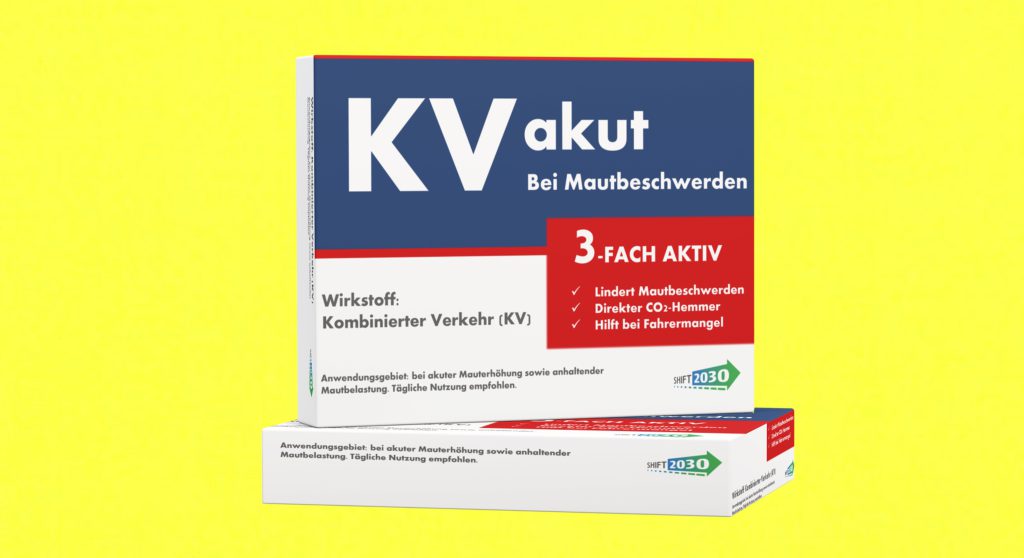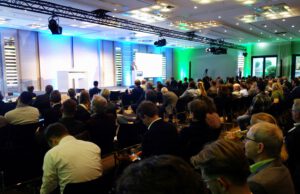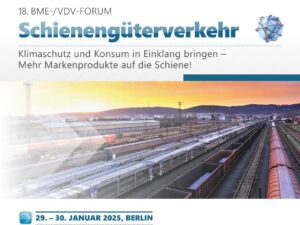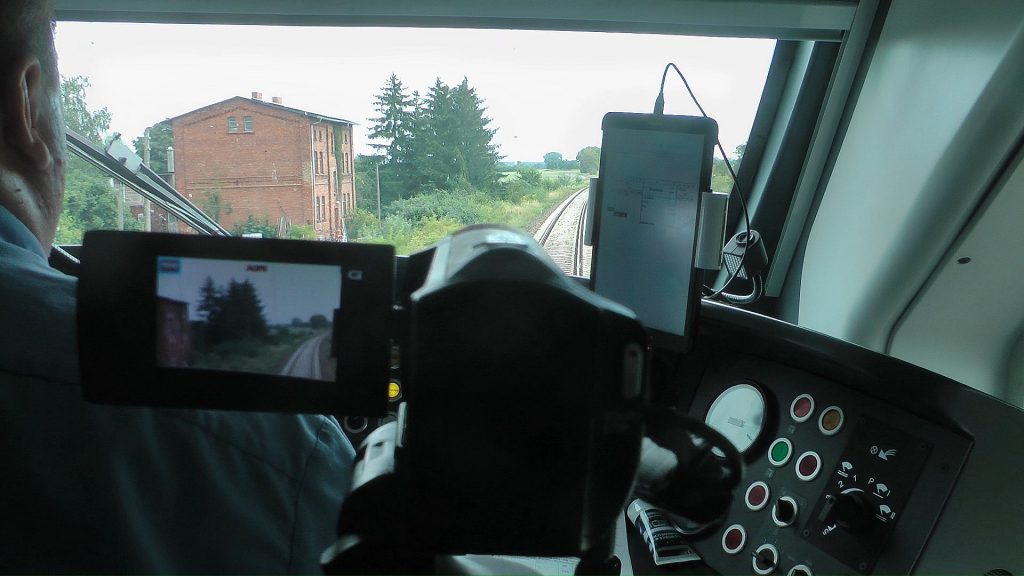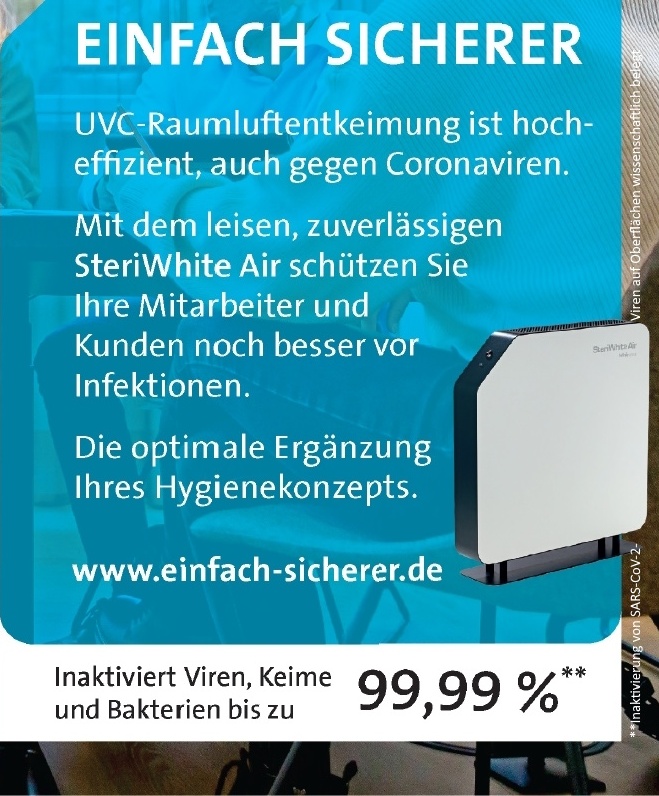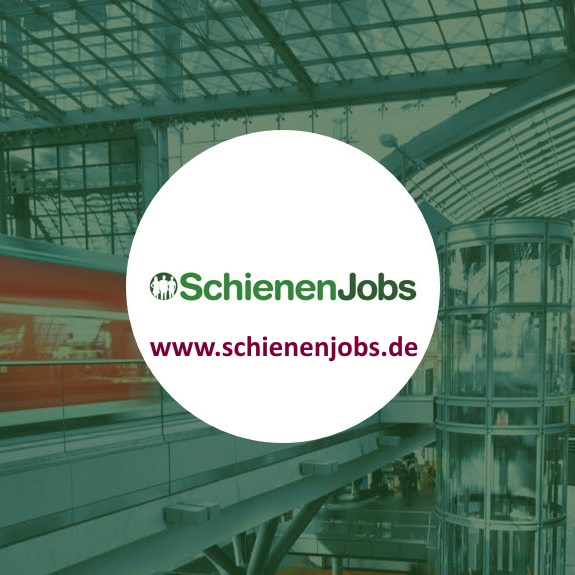Sebastian Ruckes, Executive Director of SHIFT 2030, and Michael Bott from the digital logistics company rail-flow presented the campaign at an online conference on December 6, 2023. Around 2,000 kits will be sent to important shipping and logistics companies. The boxes contain a “medication pack” and a “medical package leaflet”. This funny presentation is intended to point out the advantages of combined transport.
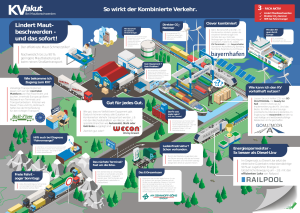
A truck on a train costs no toll. Rail transport is therefore becoming more attractive. The information cards explain in a simple and understandable way how the campaign partners work and what they offer. Further information, including on public financial support according to the “Guideline for the promotion of investments in combined transport handling facilities”, is available by telephone on +49 (0) 69 870 015 151 and by email: info@shift2030.eu
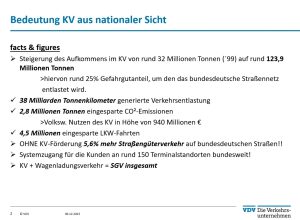
Marcus Gersinske, head of the VDV Railway Resource Management department, presented facts about combined transport.
There are already 150 terminal locations nationwide. A transition from road to rail is therefore possible in many places. Ralf-Charley Schultze, President of the International Association for Combined Rail-Road Transport (UIRR), provided information about current legislative projects in Brussels. The Greening Freight Transport Package includes five legislative proposals, including a CT policy introduced on November 7th. With its new framework conditions, this should generally be seen as positive, but implementation will not take place for four to five years at the earliest. This also includes the Euro Count Emissions Regulation, the Capacity Management Regulation, the Train Driver Directive and the Directive on the dimensions and weights of road vehicles, “which have a direct impact on our business beyond the new TEN-T guidelines “.
In summary, Schultze formulated it with a humorous reference to the comparison with a medication: “KV is the solution to alleviate the toll pain and to survive at all. It’s important to swallow this pill!”
Uwe Boettcher from Ambrogio and Daniel Küster from the Warsteiner Brewery presented use cases. The Italian company Ambrogio is a pioneer in CT, emphasized the Branch Manager Germany of Ambrogio Intermodal. A single train, with up to 40 trailers, brings a lot more goods from the spot than a truck: “It makes sense and is absolutely right to do that.” Daniel Küster emphasized that one must “get rid of the fears of getting into the CT”. His own twelve-year company experience proves: The Warsteiner beverage trains arrive in Munich and Hamburg with 99% punctuality. That’s exactly how it should be, according to Küster – “because the ship for the further transport route doesn’t wait for the train…”
So there is demonstrably a “stable logistics chain” including the railway. Küster has also been appointed managing director of the newly founded company Boxx Intermodal Logistics for two years. This is a subsidiary of the Warsteiner brewery Haus Cramer, which enables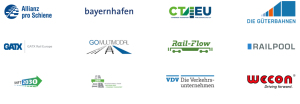
Sponsors and supporters of the Shift 2030 campaign.
third-party companies to also use the brewery’s loading capacities and trains. In keeping with the one-shop principle, all handling in the Port of Hamburg is also offered. The offer is being enthusiastically accepted, says Küster: “We invite interested companies to come to us. When they see our facilities and our employees, it quickly becomes clear: we “can” do rail. And the rail system is better than its reputation.”
In the new toll regulations for road use in Germany, a so-called CO₂ emission class is being introduced as a new tariff feature. The toll rate per kilometer now also depends on how much carbon dioxide a vehicle emits. This new regulation is based on an EU-wide requirement. In addition, in the future it will no longer be the permissible total weight that will be decisive for the assignment to a weight class, but rather the technically permissible total mass. This means vehicles can fall into a higher weight class or become subject to tolls. From July 1, 2024, the toll obligation will be extended to all vehicles with a technically permissible total mass of more than 3.5 tons.
Hermann Schmidtendorf, editor-in-chief


